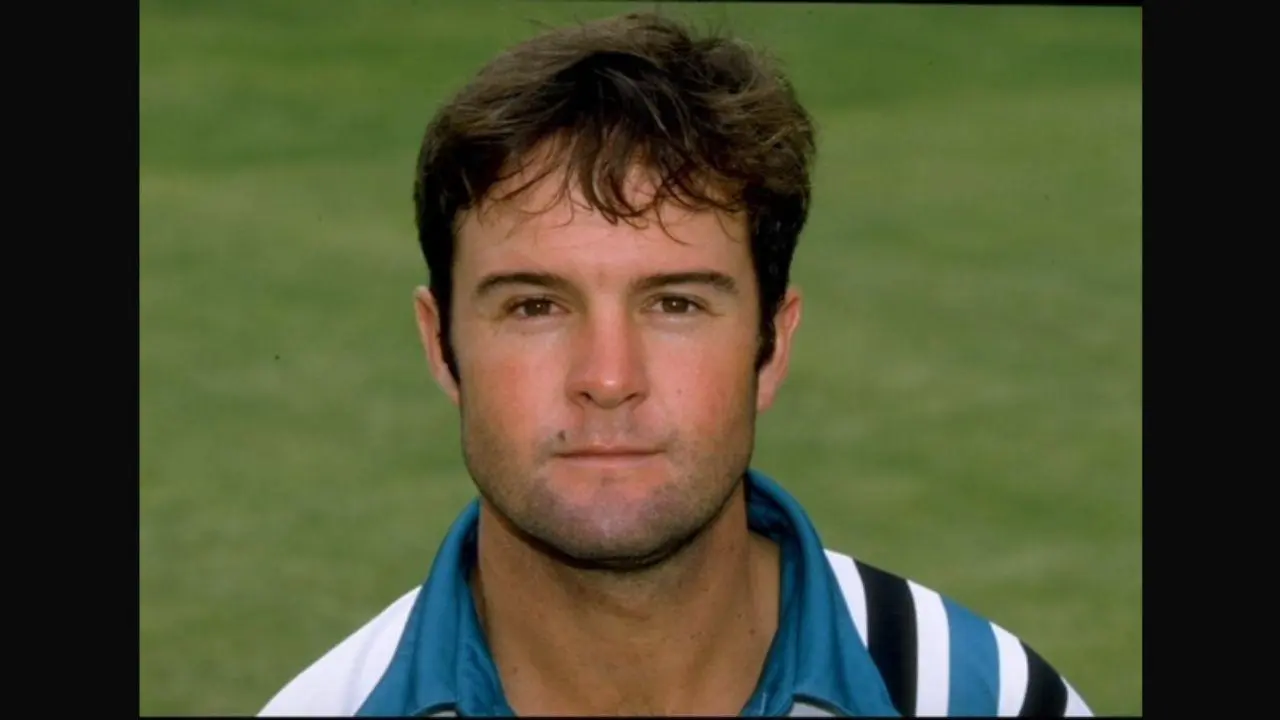An eye-witness account of a fine, match-winning innings by the New Zealand opener in the first match of the 1996 World Cup exactly 25 years ago at Ahmedabad

NZ opener Nathan Astle. Pic/Getty Images
It’s 25 years to the day for the start of cricket’s sixth World Cup. The inaugural match pitted England against New Zealand at Motera, near Ahmedabad.
I arrived in Ahmedabad for my first World Cup game two days in advance. On my way to the ground, I noticed a hoarding on Ashram Road, which read, “Sixth World Cup or Third World War?” The decision by Australia and the West Indies not to visit Sri Lanka for their games had obviously not gone down well with the hoarding writer.
On reaching the Sardar Patel Stadium, I ran into Rajdeep Sardesai, who was then working for NDTV. “I have interviewed all the commentators,” Rajdeep exclaimed with glee. One of those commentators was Tony Greig, who had played with his father Dilip in the opening Test of the 1972-73 series in India. Geoff Boycott and Sir Richard Hadlee were the other legends on commentary duty.
The following day was hectic - press conferences, hunting down interesting nuggets for the Tour Diary section and of course writing out the all-important match preview. It felt like the eyes of the editor and my colleagues on the sports desk were on me considering this was the opening game albeit not an India encounter.
My colleague Suresh Karkera, the lensman assigned to cover the game with me, was in full josh too. He managed to capture Jack Russell painting his wicketkeeping pads near the pickets at one end of the ground. Atherton spoke to the media at the ground but only the Brit ones. The official press conference was scheduled at the team hotel in the afternoon and that did not go down well with the Indian reporters. The late English cricket writer Ted Corbett felt sorry for his Indian friends and was happy to read out all what Atherton had told the foreign journalists.
Despite the magnitude of the tournament, the media did not have an enclosed press box and the men with typewriters were always wary of something landing on them or their instruments courtesy the crowd not far away from where they sat.
England won the toss and elected to field in the hope of extracting some early morning advantage.
Nathan Astle was the star of the New Zealand innings with 101 out of the total of 239-6 in 50 overs. His driving was imperious and England probably shouldn’t have bowled so full to him. He even smashed the short ones as he put on 96 for the second wicket with Stephen Fleming. Astle, who took an hundred off an Indian attack in the Nagpur ODI the previous year, slammed eight fours and two sixes in Ahmedabad.
New Zealand ought to have got much more considering the poor English catching (four dropped catches) and fielding; both openers dropped early on. Chris Cairns was the next top-scorer with 36.
Atherton couldn’t believe that he was cleaned up by Dion Nash’s yorker for one. One-drop Graeme Hick (85 off 102 balls) was severe on bowlers who offered him even a little width and his fluency gave England hope. However, he was hampered by a hamstring injury, which caused Atherton to be his runner. The captain caused Hick’s dismissal as he failed to reach the crease.
Alec Stewart often drove to a nicety but Chris Harris had him caught and bowled off an innocuous-looking delivery for 34.
Neil Fairbother’s 36 went in vain as the New Zealand bowlers kept the pressure on to restrict England to 228-9.
New Zealand’s coach Glenn Turner was happy with the win but felt they should have got far more than 239. “I thought we could get 280 but we should have got at least 260,” Turner told reporters. Germon was asked if Hick’s run out turned the game around and he disagreed: “I feel every wicket to fall was a turning point,” he said.
I went to meet Astle on the evening of the match only to discover that he was partying with his mates in a room on the ground floor of the Cama Hotel.
Coach Turner, who was otherwise great to the media couldn’t get Astle to speak to me and left for his room. I hung around the lobby in the hope of Astle moving out of the party room. He surfaced a few minutes later. He politely refused the invitation to be interviewed and promised he’d speak to me the following day before the team left for Baroda to take on The Netherlands. I made my way out of the lobby and heard a voice that said, “Mate, we will do the interview right now. Come up.” Outside his room he spoke about his man of the match-winning innings and then revealed something that touched my heart. He said: “Two days before leaving for the World Cup, I lost my grandfather. He was very close to me and my grandmother told me to score a hundred for him.”
I thanked Astle for his time and the emotional story that would make the front page of mid-day. Twenty five years later, I am still wondering what made Astle change his mind and decide to speak to me that night. I haven’t got a chance to thank him, but I will someday. Hopefully.
 Subscribe today by clicking the link and stay updated with the latest news!" Click here!
Subscribe today by clicking the link and stay updated with the latest news!" Click here!









